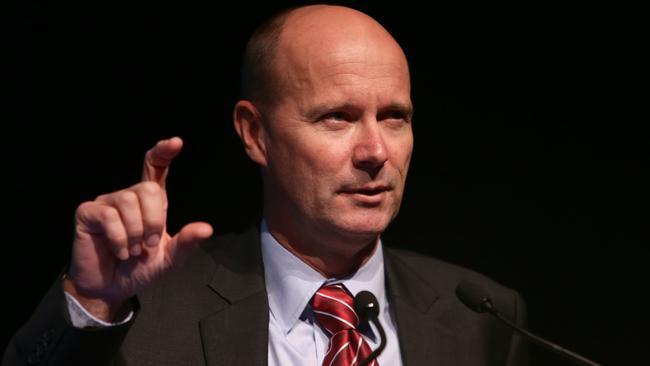ASIC poised to ban risky financial products
Regulators are considering using new powers to ban or restrict risky financial products.

The corporate regulator is considering using its new product powers to ban or restrict the sale of risky financial products, including binary options, margin foreign exchange and contracts for difference.
The Australian Securities & Investments Commission’s markets boss, Greg Yanco, said the regulator would consult before invoking its product intervention powers, but called on industry players to “lift their game”.
He highlighted a spate of other markets that had already banned or restricted such products.
“We have that (intervention) power now. We are starting to think really hard … about binary options, and margin FX and leverage in margin FX and CFDs,” Mr Yanco told the Stockbrokers And Financial Advisers Association conference. “We have really formed a view, and I think this is a global view for regulators, that equities and futures markets are pretty well supervised both internally and externally.
“But in the FICC (fixed income, currencies and commodities) market people need to lift their game.
“We’ve been lifting our game in terms of bringing people on that understand those markets.”
Last month ASIC warned that Australian licensees offering over-the-counter (OTC) derivatives to retail investors in some countries may be providing “unlicensed or unauthorised services”.
Regulators in markets including Europe, Japan and China had restricted or banned the products, ASIC said, noting it would not “tolerate that conduct”.
Sources suggested authorities from several markets including China had been in touch with ASIC over the unlawful selling by Australian groups of binary options. The products are largely used by retail investors to bet on an event, with the outcome typically being losing the initial investment in full if the call is incorrect, or receiving a payout if they are right.
CFDs are used to speculate on the rise and fall in prices of underlying assets, such as foreign exchange and shares, without owning the underlying stock or currency. In foreign exchange trading, large amounts of leverage can be used, increasing the risk.
ASIC is believed to be looking closely at a handful of local firms that operate in this sector.
An ASIC report in 2018 into the OTC derivatives industry found it was riddled with issues, including misleading marketing, unclear pricing and inadequate risk management.
The report also said “the majority” of consumer trading in those products was unprofitable.
In March, ASIC obtained interim orders in the Federal Court against Forex Capital Trading restraining the company from removing assets from Australia, disposing of their property and freezing its bank account. The matter is ongoing.
Mr Yanco told the industry event that ASIC also had onsite visits “fairly regularly” with the largest 16 investment banks and stockbroking firms as it looked to clamp down on riskier parts of the market.
More broadly, Mr Yanco said the regulator wanted to be “getting under the bonnet” of finance companies, including meeting with leadership to understand processes and risk management.
He also spoke of a completed ASIC trial of natural language processing — computer-generated scanning of words — for ASX prospectuses.
“It seems as though we can, the computer can, detect anomalies in prospectuses pretty much as well as people,” Mr Yanco said.
The industry expects the process to be rolled out as a method of trawling through ASX float documents from July 1, via a select sample of prospectuses.
Mr Yanco reiterated ASIC’s new “why not” litigate policy, but cautioned that the regulator didn’t have unlimited resources.
“There will be more litigation,” he said, adding that close and continuous monitoring of large banks and wealth companies after the Hayne royal commission had led to hundreds of onsite interviews.
“We are picking up things they need to do better on.”
The Hayne royal commission hit out at ASIC and the prudential regulator over a relationship that was too cosy with the companies they monitored and supervised. It has prompted an overhaul of both institutions.
Mr Yanco said ASIC’s onsite monitoring had ensured a direct line for problems to be conveyed to company chief executives.
Separately, an ASIC corporate governance taskforce will report on remuneration structures in the market by September 30 and non-financial risks in early next year.




